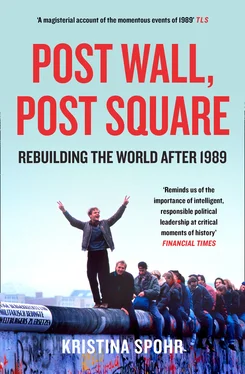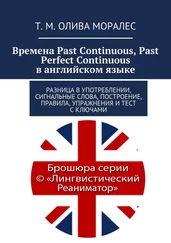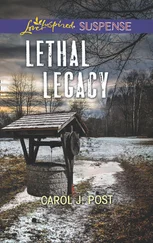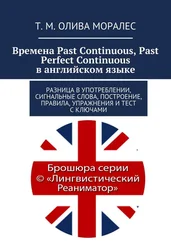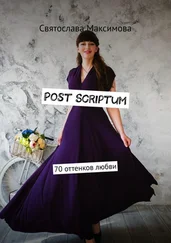Jaruzelski was in a bind. Should he cave in and accept the accelerating pace of the political transition? Or should he stand firm and dissolve the legislature? New and unconstrained elections would undoubtedly spell total disaster for the communists. The US ambassador in Warsaw warned that Poland was now ‘right on the brink’. If the situation escalated, how long would ‘the decaying power elite fail to defend itself’? How to prevent a conservative backlash? Or even civil war?[109]
Jaruzelski agonised for several days. What tipped him against a hard line was the prospect of political and economic chaos and also quiet but firm pressure from Gorbachev and the Kremlin. Wałęsa also made crucial concessions – promising that Poland would remain within the Warsaw Pact and offering the communists the key ministries of Defence and the Interior, in other words control of the army and the police. Both of these were important gestures to Moscow – or at least to the Moscow of 1956 and 1968, just in case that Cold War past was not as dead as Gorbachev claimed. Under these conditions Jaruzelski decided to take the step that would push Poland’s political system beyond anything being attempted elsewhere in the Eastern bloc – a ‘partnerlike cooperation’ between party and movement. The communist president accepted a Solidarity prime minister.[110]
The editor of the opposition newspaper Gazeta Wyborcza – applying the ‘one for us and one for them’ rule – had a month earlier also proposed this solution in an opinion piece he entitled ‘Your president, our prime minister’. And so the chalice passed to Tadeusz Mazowiecki, a journalist and prominent Catholic layman since the 1950s. From the early days of Solidarity he had been a vital link between the progressive intelligentsia and the militant workers, and had worked as editor of Tygodnik Solidarno ść , the new Solidarity weekly, before being interned for a year under martial law. In 1988–9 he helped negotiate the end of the mass strikes and the construction of the round-table accords.[111]
On 24 August, Mazowiecki was confirmed prime minister by the Sejm, including the votes of most of the communist deputies, who thus indicated their willingness in principle to serve under him. He had become the first non-communist head of government in Eastern Europe since the early post-war years, yet nobody in the West was too jubilant. ‘A historic step,’ said a US State Department official, but ‘there is no sense of gloating here’ considering the immense economic challenges Mazowiecki faced.[112] In fact, the new Polish leader did not deny this, admitting ‘Nobody has previously taken the road that leads from socialism to capitalism.’[113]
On the plus side, it took only three weeks for the new Polish PM to present his government to parliament – where it was approved unanimously by 402 votes to nil, with thirteen abstentions. Yet it was perhaps symbolic that the sixty-two-year-old Mazowiecki suffered a dizzy spell while delivering his opening speech on 12 September, which forced him to take a break for nearly an hour. When he returned to the stage, to thunderous applause, he joked: ‘Excuse me, but I have reached the same state as the Polish economy.’ After the laughter had died down, he added ‘I have recovered – and I hope the economy will recover too.’ At the end, Mazowiecki stood at the prime minister’s bench ‘as a man of Solidarity’, arms raised in triumph, flashing the two-fingered Solidarity victory sign.[114]
Having fought each other for nearly a decade, Solidarity and communists were now working in uneasy collaboration, while most of the government bureaucracy simply remained in situ, adapting, often eagerly, to new goals and a fresh ethos. In place of the deadlocked triangle of Party–Solidarity–Church the country was now run by a novel configuration of forces: government, parliament and president, with Solidarity’s leading figurehead and strategist Lech Wałęsa looking on – effectively as president-in-waiting.
Although Poland’s ravaged economy had hardly begun to move from the Plan to the market, the first and crucial phase of political transition – guided but not defined by the round-table pact – had been concluded without conflict. There had been no civil war and no Soviet military intervention. This peaceful ‘refolution’ had a dynamic effect not only in Poland but also in other communist-ruled countries, signalling that the once inconceivable was now possible.
As events in Poland unfolded, the superpowers looked on as bystanders. To be sure, the State Department favoured a more adventurous and openly supportive policy. But the White House remained more guarded – placing the onus firmly on Warsaw. ‘Only the Poles can see that they succeed,’ Scowcroft told CNN when asked why the president was not rushing to offer the Poles more aid. ‘We can help, but we can only help if money goes into structures which can make it used properly.’ His message was clear: let’s wait and see. Bush felt it ‘important to act carefully and to avoid pouring money down a rat-hole’.[115]
As for the USSR, Gorbachev appeared to cling to the illusion that the ‘democratising socialism’ of Poland and Hungary had a future. Be that as it may, the Kremlin had neither the will nor the resources to police Eastern Europe in the style of Stalin, Khrushchev or Brezhnev. In any case, Gorbachev was being severely challenged just to hold on to power at home and keep the Soviet Union together. He was now operating within a very different political system, the consequence of the USSR’s first free election since 1917. Having persuaded the Communist Party to abolish the Supreme Soviet and create a functioning parliament, the Congress of People’s Deputies, in March 1989, he found that this triumph of perestroika created a more independent body that gradually undermined his power. As biographer William Taubman observed, he was ‘replacing the old political “game”, at which he excelled, with a new one that he never really mastered’. In the process new nationalist, even secessionist, energies were set loose as more and more power was devolved to the republics. These centrifugal forces emerged dramatically in Georgia – prompting the intervention of the Red Army in Tbilisi in April, when twenty-one people were killed – and became even more visible as far as Europe was concerned in the Baltic States on the USSR’s western rim.[116]
On 23 August, the day before Mazowiecki was confirmed as Poland’s premier, an estimated 2 million people formed a human chain some 400 miles right across Estonia, Latvia and Lithuania to commemorate the fiftieth anniversary of Stalin’s pact with Hitler in 1939 that assigned these three Baltic States, independent since 1918, to the Soviet Union. The ‘Baltic Chain’ or ‘Chain of Freedom’ was a graphic reminder that the USSR and the Soviet empire had been held together by force. Both the Polish Assembly and the Polish Communist Party publicly condemned the Pact, as had Gorbachev himself just a few days before. But none of them was, as yet, willing to grapple with the logical implication of their words. The Pact had pulled not only the Baltic States within the USSR but also much of eastern Poland. Denouncing Stalinist policies was therefore not simply a political act; it was another sign that the Soviet bloc’s burgeoning revolution was also opening up buried questions about European geopolitics – questions that affected basic relations between the superpowers.[117]
And so Poland served almost as the icebreaker of the Cold War in the summer of 1989. Hungary followed in its wake, pursuing its own round-table talks for the reform of the electoral process and the governmental structure. In this case, though, the table was not round but triangular – as befitted the more pointed configuration of Hungarian politics in which the key players were the communists, the opposition parties and the non-party organisations. Having started on 13 June, the three groupings reached agreement on 18 September on the transition to a multiparty parliamentary democracy via fully-free national elections. The plan was that, before the elections, a president would be elected by the old, existing parliament – indeed, there was a certain understanding that Imre Pozsgay was the most likely candidate. Yet, as soon as that idea was aired, the Free Democrats, Young Democrats and Independent Trade Unions broke the consensus, refusing to sign the agreement. Quickly Hungary’s triangular politics began to fragment. The opposition parties started to feud among themselves, while on 7 October the Communist Party (in other words, the Hungarian Socialist Workers’ Party) voted to dissolve and then rebrand itself as the Hungarian Socialist Party led by Rezső Nyers. This proved a fatal move, because the public saw through the cosmetic change. Over the following months, in the run-up to the elections, the ‘new-old party’ would fail to grow in membership, unlike its opposition rivals. Meanwhile some communists around Grósz formed, under the old name, their own ‘new-old’ splinter party which was to become even more marginal in Hungarian political life.[118]
Читать дальше
